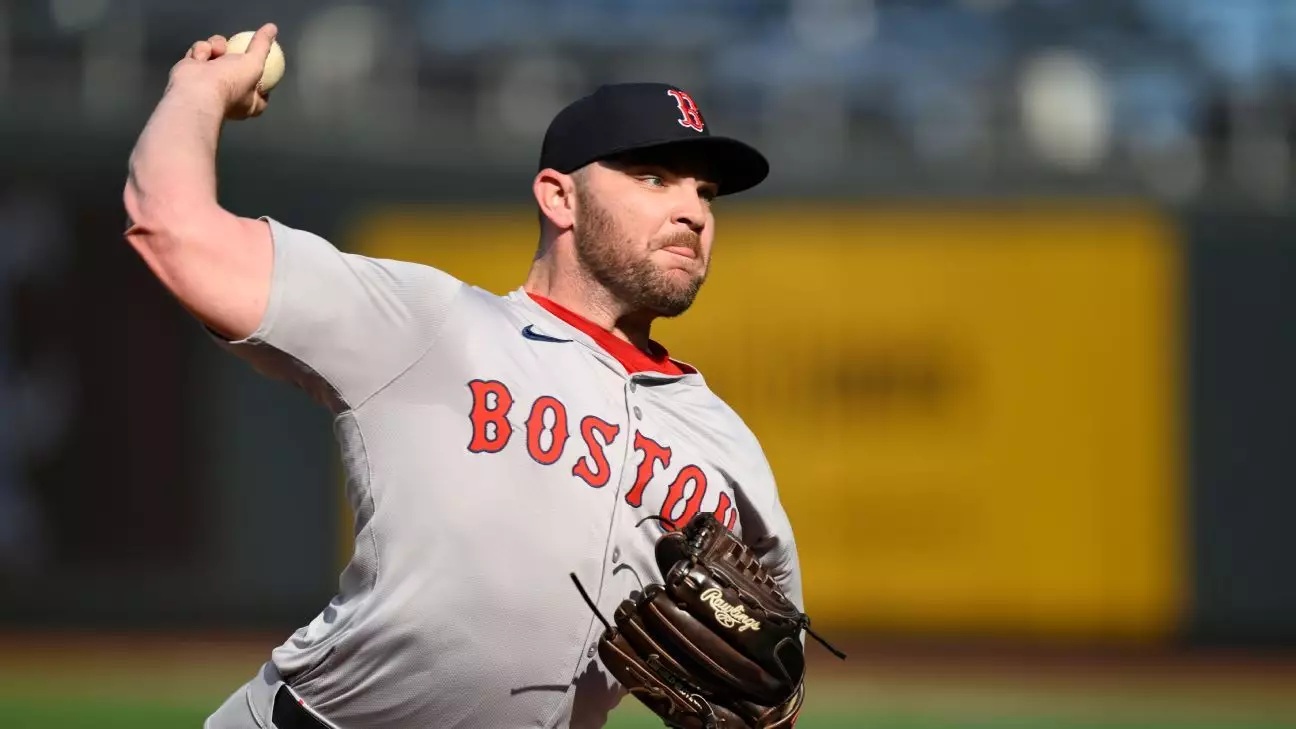In today’s hyper-connected world, athletes are not just celebrated figures on the field; they are also under constant scrutiny as public personas. This relentless spotlight comes with its own unique set of challenges, one of the most troubling being the venomous comments and threats directed at them. The recent outcry from Boston Red Sox reliever Liam Hendriks regarding death threats aimed at him and his family highlights an alarming trend where fan engagement crosses the line into outright hostility. While it may come as a surprise to some, the intersection of public adoration and digital rage reveals a more complex emotional reality for these athletes.
Hendriks, who bravely battled non-Hodgkin’s lymphoma and has fought through injuries, recently condemned the hate messages he received following a tough loss against the New York Mets. In an emotional post on social media, he articulated a sentiment shared by many in the professional sports community: “enough is enough.” Such statements are not mere expressions of personal distress but also a clarion call for a more considerable recognition of player welfare in the face of rampant toxicity online. The struggles of individuals like Hendriks should lead us to reflect on the ethical implications of fandom in the digital age.
Echoes of a Manager’s Wisdom
Red Sox manager Alex Cora stands as an advocate for his players, clearly empathizing with Hendriks. Cora’s remarks following the incident reveal a deeper understanding of the human psyche behind the uniform. “We’re in the public eye, and people feel they have the right to say whatever they want,” he noted, emphasizing the absurdity of online vitriol. While players are expected to perform flawlessly, the reality is that mental health is an often neglected component of athletic performance—a trend that must change if we are to foster healthier environments for athletes.
Cora himself has faced the social media buzz firsthand, especially in light of his daughter’s recent graduation. Instead of solely celebrating personal milestones, he was hurled into a controversy about prioritizing family. The slings and arrows thrown his way speak volumes about the dangers of social media culture, particularly in the realm of sports. With Cora having faced scrutiny stemming from the Houston Astros’ sign-stealing scandal, his concern for the safety of his family speaks to a palpable fear that can accompany public life. The stakes are disarmingly high; when anger translates into threats, the boundaries of acceptable behavior are significantly blurred.
The Dangerous Delusion of Online Anonymity
The anonymity afforded by social media enables individuals to express their frustrations without accountability, leading to a more toxic environment. The growing trend of “burner accounts” that house fake identities further complicates the situation. Fans venting their spleen at players may not fully comprehend the weight of their words or the potential harm they inflict. An individual’s impulsive rage should not warrant the kind of online harassment that could escalate into real-life threats.
Cora pointedly highlighted a precarious reality: when “the game becomes personal,” fans often fail to separate a player’s performance from their humanity. The emotional volatility stemming from gambling, instant replays, or a single bad pitch only intensifies this divide. In today’s era, where every play is dissected, it’s crucial for fans to remember that their targets—the players—are human beings capable of pain and trauma.
Collective Responsibility in Sports Fandom
In navigating this complex landscape, it is imperative that we all share the responsibility of curbing toxic fan behavior. Organizations, teams, and fans alike must engage in serious discussions about acceptable behavior as sports continue to merge seamlessly with social media. There’s an urgent need for policy reforms at institutional levels that protect players not just from physical harm but also from emotional and psychological distress.
In the end, fostering a more respectful dialog in the realm of sports is about creating a culture that values players as human beings rather than merely commodities whose worth fluctuates on game day. As we continue to navigate these challenges, the calls for empathy and understanding from figures like Liam Hendriks and Alex Cora remind us of the profound, often overlooked impact that sports can have—not only on players but on society as a whole.


Leave a Reply